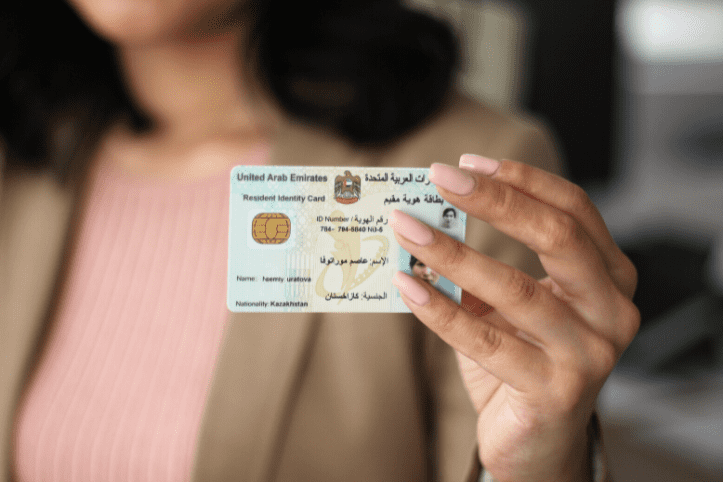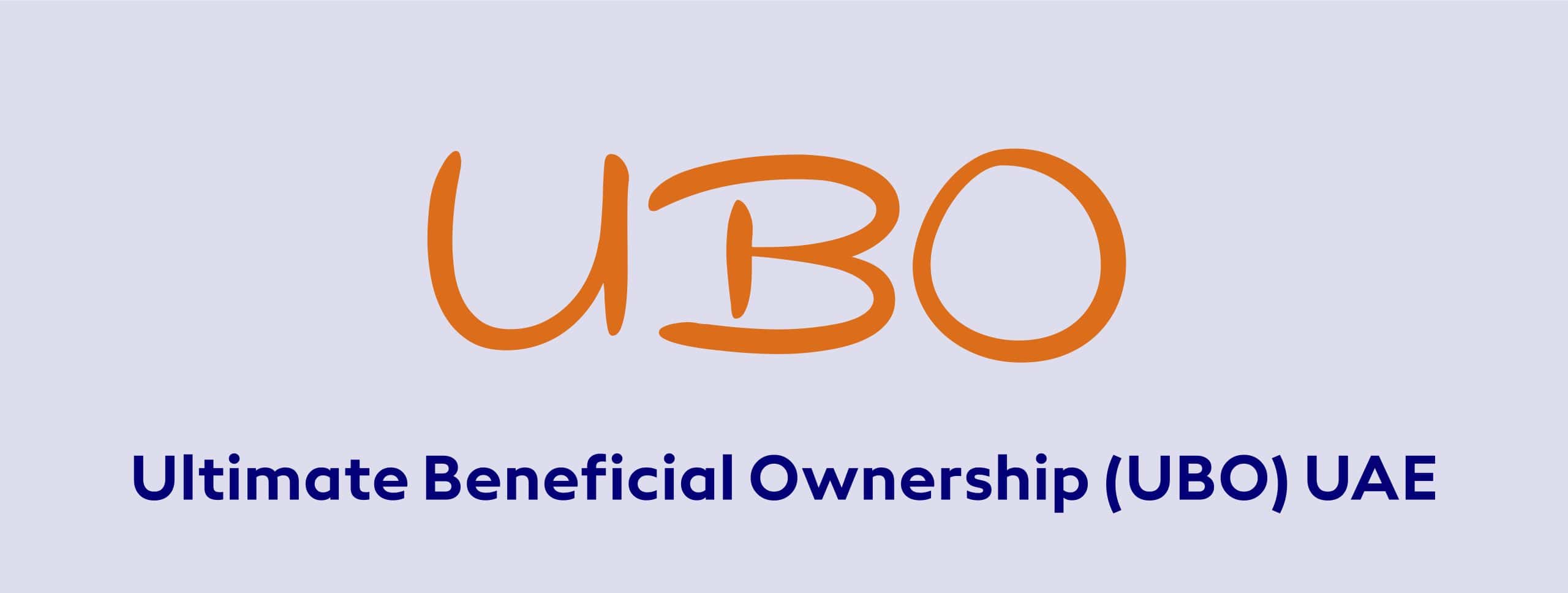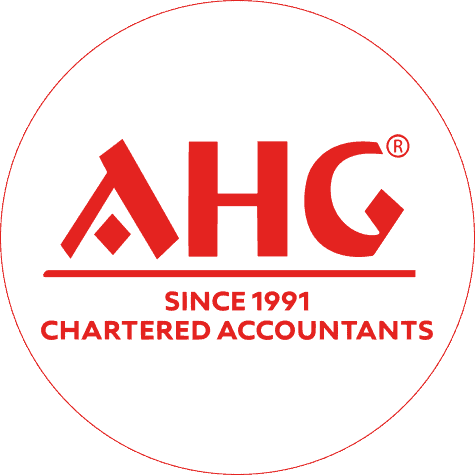(UBO) Ultimate Beneficial Ownership UAE
UBO Meaning
Ultimate Beneficial Ownership (UBO) is a natural person who owns or controls a company, trust, or legal entity, and benefits from its assets and profits. It is the real person behind a legal entity, who ultimately exercises control over the entity, whether directly or indirectly.
UAE recently replaced Cabinet Decision No. 34 of 2020 with Cabinet Resolution No. 58 of 2020 on the Regulation of the Procedures Related to Real Beneficiaries (“Decision”). Ultimate Beneficial Ownership intends to enhance the transparency of UAE-registered entities. It also plans to develop effective and sustainable executive and regulatory mechanisms and procedures in respect of beneficial owner data and improve implementation to ensure International Compliance and global confidence.
What are the Exceptions of Ultimate Beneficial Ownership?
The Regulations do not apply to companies that are directly or indirectly wholly owned by the federal or local government or their subsidiaries, as well as companies that are registered in the financial free zones in the UAE, namely the Abu Dhabi Global Market and the Dubai International Financial Centre.

How to Identify Ultimate Beneficial Owner?
Ultimate Beneficial Owner Rule
As per Cabinet Resolution No. (58) of 2020, Beneficial Owner or Real Beneficiaries can be the following:
For UBO:
- Natural Person who owns/controls the establishment definitively, through direct/indirect ownership shares of 25 % or more.
- Or: someone who holds the right to vote by 25% or more or the right to appoint/dismiss the majority of the establishment’s managers or any other means by which he exercises ultimate control over the establishment.
- In cases where ubo cannot be identified through the two conditions above, then a natural person who holds the position of Senior Management Official in the company may be deemed as the UBO.
On the other hand, there are entities exempted from this resolution. They are as follows: (a) the companies in economic free zones like Abu Dhabi Gold Markets and Dubai International Financial Centre, and (b) the companies directly or indirectly owned or affiliated by the Federal or Emirate Government.
Entities must assess who constitutes a ubo and consider whether anyone is a nominee Director / Manager. The Register of Shareholders / Partners is not a new concept. The Thirequirement isn’t outlined in the UAE Commercial Companies Law and Free Zone Companies Regulations. The Resolution requires additional information about voting rights.
For Nominee Director/Manager:
The details of the Director / Manager, acting in agreement with the instructions of another person. For the Partner/Shareholder:
A UBO is any individual who controls 25% or more of the partnership’s capital or who ultimately is entitled to control 25% or more of the voting rights of the partnership.
On the other hand, some entities are exempted from this resolution. They are as follows: (a) the companies in economic free zones like Abu Dhabi Gold Markets and Dubai International Financial Centre, and (b) the companies directly or indirectly owned by the Federal or Emirate Government.
Entities must assess who constitutes a ubo and consider whether anyone is a nominee Director / Manager. The Register of Shareholders / Partners is not a new concept, as this requirement is outlined in the UAE Commercial Companies Law and respective Free Zone Companies Regulations. However, the Resolution requires additional information to be detailed (for example, voting rights).

UBO International Standards
The FATF: Financial Action Task Force is an organisation that keeps a tab on global money laundering and terrorist financing activities. It lays down the international standards that aim to prevent illegal financial transactions. Two hundred countries agreed to the rules established by the Financial Task Force for beneficial ownership in 2003 and 2012. The 4th AMLD and CDD rules are applicable, but several countries adhere to the terms laid down in the international treaties that require beneficial ownership declarations. The organisations regularly keeps a vigilant eye on the money laundering and terrorism financing methods and improves their standards to combat the challenges of evolving money laundering techniques.
As a result of the FATF study, there has been massive awareness, and legitimate governments are targeting corruption. The emphasis on obtaining information on beneficial ownership due diligence has increased more than ever before, serving many purposes such as increased financial transparency, preventing money laundering, and stopping funding of terrorism and unlawful activities.
UBO Regulations in UAE
Which companies are obliged to submit the UBO information to authorities?
Companies in offshore, onshore, excluding companies in the Abu Dhabi Global Markets (ADGM) and Dubai International Financial Centre (DIFC), due to the presence of their own framework regarding UBOs. Thus, starting from July 2021, as per the Resolution № 53 of 2021 regarding Administrative Penalties Against Violating, the penalties will apply for companies, failing to submit the information.
The procedure for submitting documents for the UBO is regulated by the particular jurisdiction where a company is registered. Each jurisdiction/Free Zone determines the requirements and procedure for filing documents, usually declaration of the UBO is processed on the portal of the company that is provided to the owners of such company. Moreover, a physical visit to the institutions is not necessary. In addition, some Free Zones do not require resubmission, it all depends on the approach of the authorities
Importance of Ultimate Beneficial Owner

1. Identifying UBOs is essential for several reasons:
- First and foremost, it helps maintain transparency in the business world, ensuring that companies are held accountable for their actions. Transparency prevents financial crimes such as money laundering, tax evasion, and terrorist financing. By understanding who ultimately controls a company, authorities can more easily identify and track illicit activities.
- In addition to transparency, identifying the UBO helps protect your business from potential risks. For example, understanding the ultimate beneficiary can help you make informed decisions about the potential risks involved if you’re considering entering into a partnership or taking on a new investor. This knowledge can protect your business from financial losses and reputational damage from partnering with unscrupulous individuals or entities.
- Moreover, understanding the UBO is essential for compliance with various laws and regulations, which we’ll discuss later in this guide. Failure to identify the ultimate beneficiary can result in severe penalties, including fines and even imprisonment in some jurisdictions. By identifying the UBO, you’ll ensure your business is compliant and reduce the risk of legal and financial repercussions.
2. Identifying UBO in different business structures
The process of identifying the ultimate beneficiary can vary depending on the business structure.
3. Sole proprietorship
In a sole proprietorship, the ultimate beneficiary is relatively straightforward to identify, as only one owner has complete control over the business. In this case, the sole proprietor is the UBO.
4. Partnerships
In a partnership, the Ultimate Beneficial Owner is the individual(s) who ultimately control the partnership’s decision-making process. This can be determined by analyzing the partnership agreement, which should outline the partners’ voting rights and decision-making authority.
5. Corporations
In a corporation, the UBO is the individual(s) who ultimately controls the corporation through direct or indirect ownership of a significant percentage of shares or voting rights. Identifying the UBO in a corporation may require analyzing the share register, shareholder agreements, and other relevant documentation.
6. Trusts
For trusts, the UBO (Ultimate Beneficial Owner) is the individual(s) who ultimately controls the trust’s assets or decision-making process. This may include the settlor, trustee, protector, or beneficiary, depending on the trust’s structure and each party’s specific roles and powers.
Regardless of the business structure, identifying the UBO can be complex, especially when dealing with layers of ownership or control. It’s essential to have a thorough understanding of the business’s ownership structure and any relevant documentation to ensure you accurately identify the UBO.

UBO Reporting Requirements
Many jurisdictions require businesses to report information about their UBOs to relevant authorities. These reporting requirements can vary depending on the jurisdiction and the specific regulations in place.
Some common reporting requirements include the following:
-Registering UBO information with a central registry:
Some jurisdictions require businesses to register their ubo information with a central registry. This can help improve transparency and make it easier for authorities to identify and track UBOs.
-Submitting UBO information as part of annual reports or other regulatory filings:
In some cases, businesses may be required to submit UBO information as part of their annual reports or other regulatory filings. This can help ensure authorities have up-to-date information on a company’s ownership structure.
-Disclosing UBO information to financial institutions or other businesses:
Businesses may be required to disclose their UBO information to financial institutions or other businesses as part of their due diligence process. This can help ensure businesses are not unwittingly facilitating financial crimes or dealing with high-risk individuals or entities.
It is crucial to understand the specific reporting requirements that apply to your business and jurisdiction and ensure that you comply with these requirements.
Conclusion
UBO identification is crucial for transparency, risk management, and compliance with relevant laws and regulations. By understanding the Ultimate Beneficiary, businesses can reduce the risk of financial crimes, reputational damage, and legal and financial consequences.
AHG is committed to providing innovative solutions to help you unravel UBO complexities and efficiently manage UBO compliance using cutting-edge technology, like AI and blockchain. As the regulatory landscape continues to evolve, businesses must stay informed and proactive, leveraging technology and robust compliance programs to navigate the UBO maze effectively.

